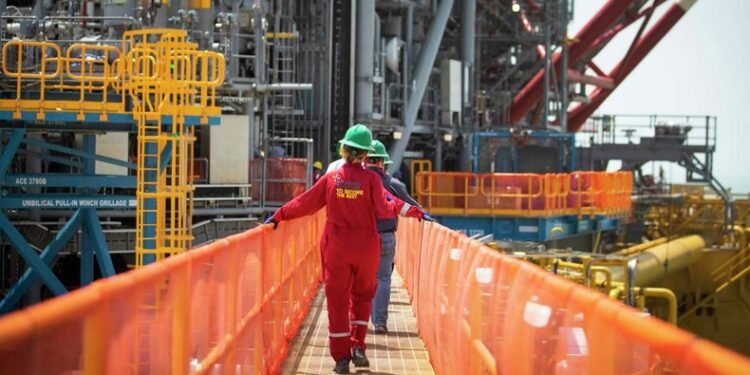Shell has announced a $400 million write-down related to an offshore oil discovery in Namibia, deeming the project commercially unviable. The decision marks a setback for Namibia’s ambitions to become a crude oil producer.
There have been several oil explorations by major oil conglomerates in the Southern African country of Namibia in recent years. While the country has yet to produce any oil, Energy companies such as Total Energies and Shell have identified an estimated 2.6 billion barrels of reserves.
Meanwhile, Chevron is looking to make its discoveries in the country by 2025, further boosting Namibia’s potential as an emerging player in the global energy sector.
Shell has stated that the oil and gas resources discovered in offshore block PEL39 “cannot currently be confirmed for commercial development,” Reuters reported.
The discovery, made in 2022 by Shell and its partners QatarEnergy and Namibia’s national oil company, had generated significant global interest alongside a separate discovery by TotalEnergies in a nearby block.
Together, these findings raised hopes for Namibia, which currently has no oil or gas production, to emerge as a new player in the energy sector.
Shell has drilled nine wells in the Namibian offshore license over the past three years, resulting in multiple discoveries. However, the company has faced significant technical and geological challenges in developing these resources.
Portuguese oil company Galp recently made a notable discovery in a different offshore license, further highlighting Namibia’s potential. Despite this, Shell has struggled with the lower permeability of the rock in its block, making the extraction of oil and gas more difficult.
On October 31, Shell CEO Wael Sawan acknowledged that Namibia’s acreage is “very challenging,” with additional complications arising from a high natural gas content in the discoveries, according to sources.
The company said in a trading update ahead of fourth-quarter results on Jan. 30 that it expects to take an exploration write-off of around $400 million, without providing details.









